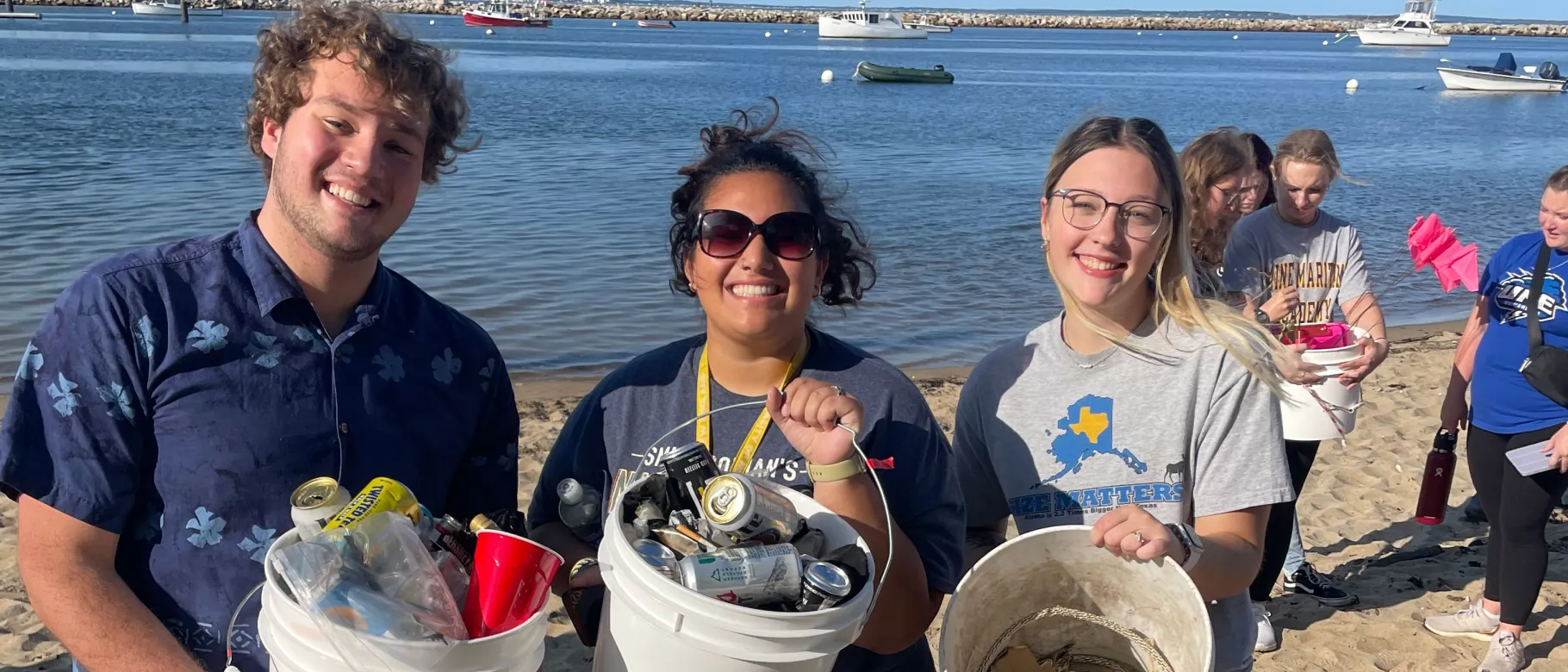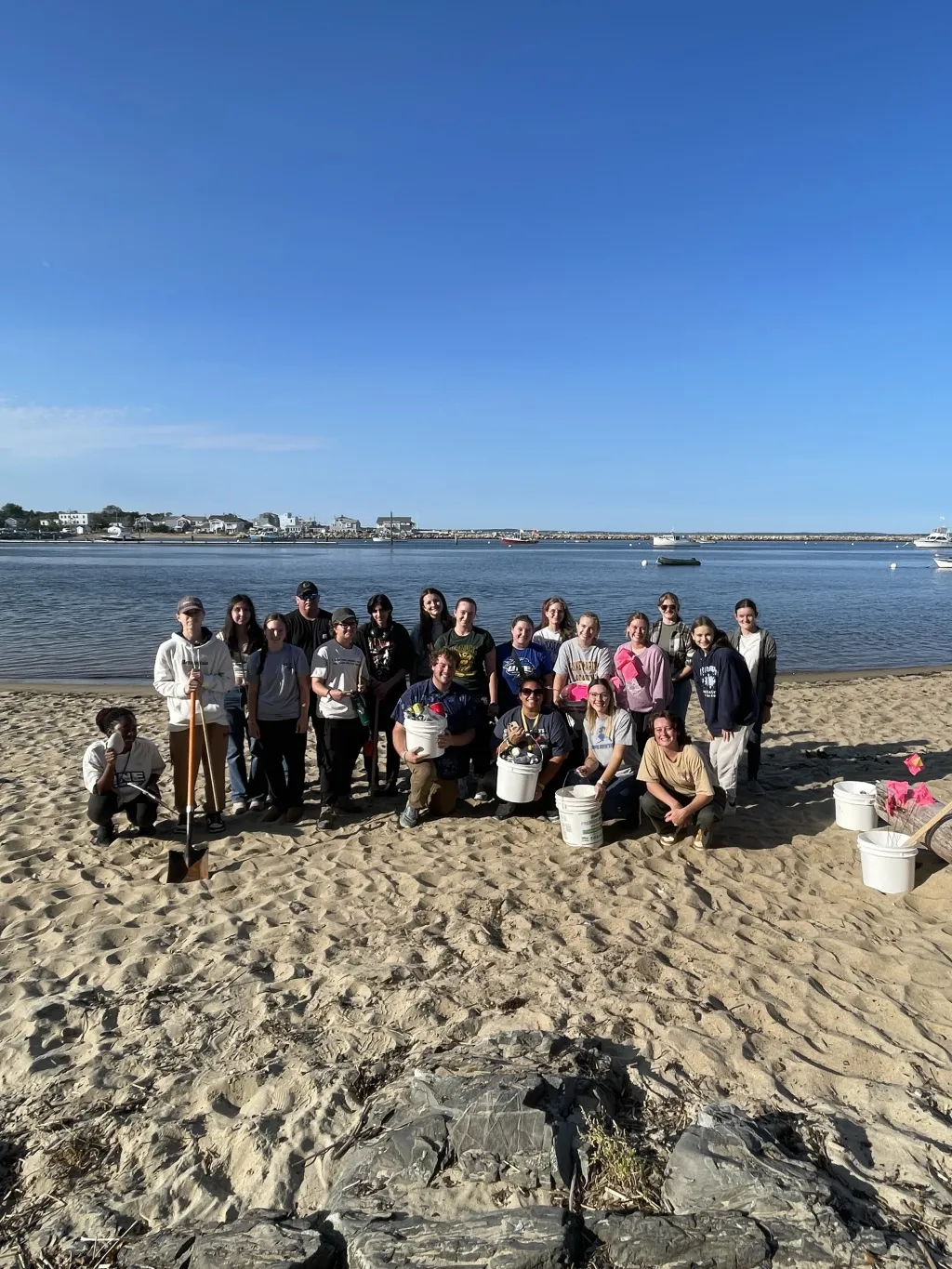UNE students combine learning and environmental stewardship in beach cleanup

A group of students at the University of New England recently did their part to improve human and environmental health by partaking in a campus beach cleanup that blended hands-on environmental service with educational opportunity.
Students in Greg LaBonte’s Ecology and Evolution lab gathered last week at Freddy Beach, located on UNE’s coastal Biddeford Campus, to both study the ecosystem and take responsibility for its upkeep.
The cleanups began three years ago when LaBonte, M.S., an assistant teaching professor in the School of Biological Sciences, saw the opportunity to simultaneously engage students in active stewardship in addition to their biology curriculum.
“I thought a beach pickup could be an easy initiative to not only enrich the student perspective but also make our campus and community a better place for all, Biddeford residents included,” LaBonte said. “I believe it's important to show our students that you can make an immediate impact on your community, and you don't have to wait for anyone to tell you what to do — that their actions matter and that they have the power to take action.”
For Samantha Quatrano, a first-year medical biology major on the pre-med track, the event was more than an assignment. Raised with the principle of “leave no trace,” Quatrano expressed a deep connection between her personal values and service work.
“The quality of our environment must be maintained by those who enjoy it,” she said. “If one chooses to socialize on the beach and enjoy the scenery, one should expect to clean up after themselves.”
Quatrano, who is also involved in volunteer clubs like The Giving Tree Society and the American Red Cross Club, said she sees service work as integral not only to her education but also to her medical school aspirations.
“Volunteering benefits many, and I enjoy spending my time helping people, animals, and the environment,” she said.
For Olivia Wedderman ’28, another pre-med medical biology student, the cleanup was a meaningful way to protect the campus that had initially attracted her to UNE.
“One of the first things that caught my eye when deciding on UNE was how beautiful the campus was,” Wedderman shared. “Helping to clean up around my school to keep it the beautiful campus it is makes me feel better as a person and about the environment I am in for my education.”
Wedderman said the cleanup supplemented her coursework — including classes in Environmental Issues and Biology — and reinforced the importance of environmental responsibility and underscored UNE’s mission of improving the lives of people, communities, and the natural world.
“A healthier planet and doing your part is everything UNE stands for, which is very important to me,” she explained.
Wedderman said she appreciated how UNE’s values are woven into the academic experience, making environmental stewardship a consistent theme across disciplines.
“It speaks volumes about the kind of school UNE is,” she said.
